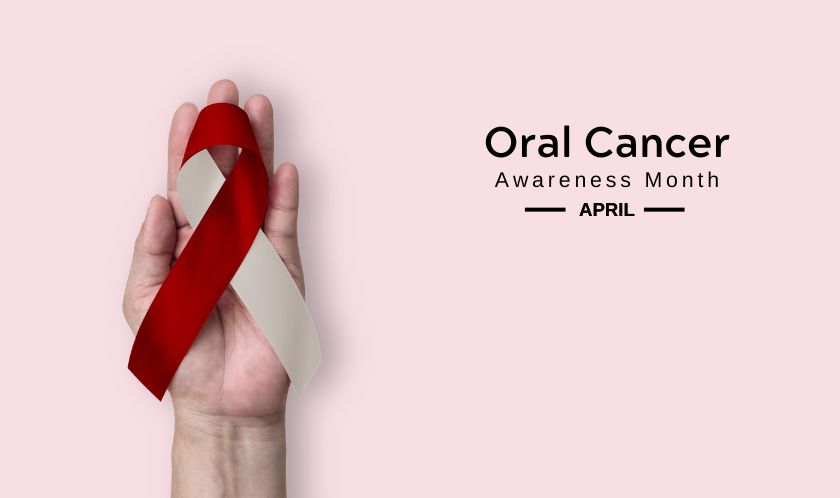Pay Online
Lifestyle Choices and Your Oral Cancer Risk

We all know the importance of brushing and flossing for a sparkling smile and fresh breath. But did you know that your daily habits also play a major role in your mouth’s overall health and can even impact your risk of oral cancer?
Oral cancer, though less common than other cancers, is a serious concern. The good news is, there are steps you can take to significantly reduce your risk. Let’s dive into the link between lifestyle choices and oral cancer, and explore some simple yet effective ways to keep your smile healthy and happy.
Kicking the Bad Habits: Minimizing Risk Factors
Certain habits can significantly increase your risk of developing oral cancer. Here are the key culprits to keep an eye on:
- Tobacco in All Its Forms: Cigarettes, cigars, chewing tobacco – they’re all loaded with harmful carcinogens that irritate and damage your mouth tissues. Quitting tobacco use is the single most impactful step you can take towards lowering your oral cancer risk. There are numerous resources available to help you quit, from nicotine patches and gum to counseling and support groups. Talk to your doctor about the best approach for you.
- Excessive Alcohol Consumption: While an occasional drink isn’t necessarily harmful, heavy alcohol consumption can weaken your immune system and irritate your mouth’s lining, creating an environment conducive to cancer development. Moderation is key.
- Sun Exposure and Your Lips: Don’t forget your lips! Just like the skin on your face, your lips are susceptible to sun damage, which can increase the risk of lip cancer. Make lip balm with SPF 30 or higher a part of your daily routine.
The Power of a Balanced Diet
What you eat not only affects your waistline but also your oral health. Here’s how to fuel your body – and your smile – for optimal defense:
- Load Up on Fruits and Veggies: These colorful powerhouses are packed with vitamins, minerals, and antioxidants that help protect your cells from damage, including the ones in your mouth. Aim for a rainbow on your plate – think leafy greens, juicy berries, and bright orange carrots.
- Don’t Forget the Power of Vitamins: A well-balanced diet is ideal, but sometimes, we might miss out on certain essential nutrients. Consider talking to your doctor about a multivitamin that includes vitamins A, C, and E, which are known to support a healthy immune system and may play a role in cancer prevention.
Early Detection is Key
Just like a regular car tune-up, scheduling regular dental checkups and cleanings is crucial for maintaining good oral health. During these visits, your dentist will not only clean your teeth and remove plaque buildup, but they will also perform a thorough oral cancer screening. Early detection is critical for successful treatment, so don’t skip those appointments.
Here’s what you can do at home to maintain a healthy smile routine:
- Brush Twice a Day: Brushing your teeth twice a day with fluoride toothpaste removes plaque and bacteria that can contribute to gum disease and oral health problems.
- Floss Daily: Flossing removes plaque and food particles from between your teeth, where brushing can’t reach.
- Be Mindful of Mouthwash: While mouthwash can be a refreshing addition to your routine, it’s not a substitute for brushing and flossing. Use it after brushing, but not as a replacement.
- Pay Attention to Your Mouth: Be mindful of any changes in your mouth, such as sores that don’t heal, persistent white patches, or unusual lumps. If you notice anything concerning, schedule an appointment with your dentist right away.
HPV Vaccination: An Additional Layer of Protection
The human papillomavirus (HPV), known to cause cervical cancer, has also been linked to some oral cancers, particularly oropharyngeal cancers. The HPV vaccine is recommended for preteens and young adults to prevent HPV infection and potentially reduce the risk of certain oral cancers.
While these lifestyle choices can significantly reduce your risk of oral cancer, they don’t guarantee complete immunity. Regular dental checkups are still essential for early detection and successful treatment.
By making smart choices, maintaining a healthy oral hygiene routine, and scheduling regular dental visits, you can take control of your oral health and keep your smile bright and healthy for years to come.
